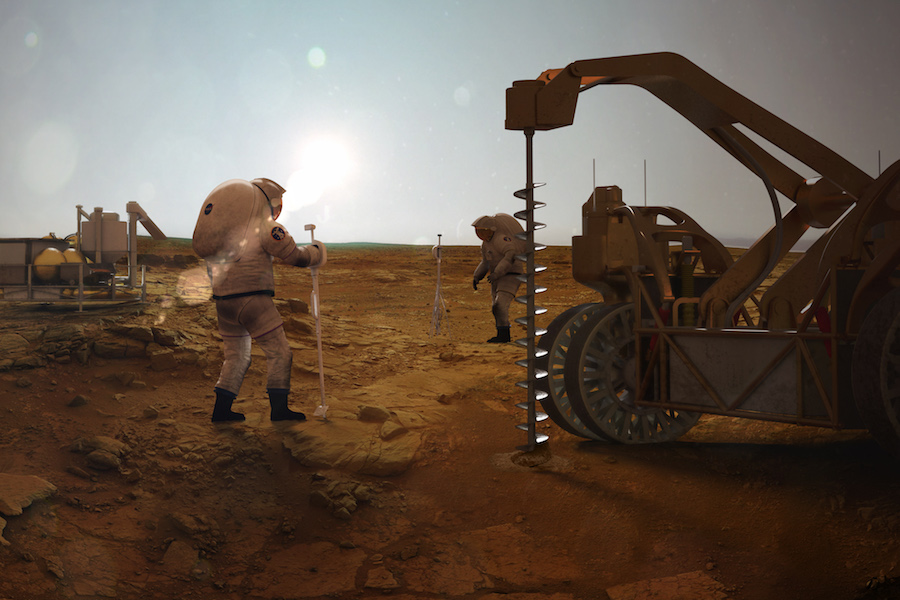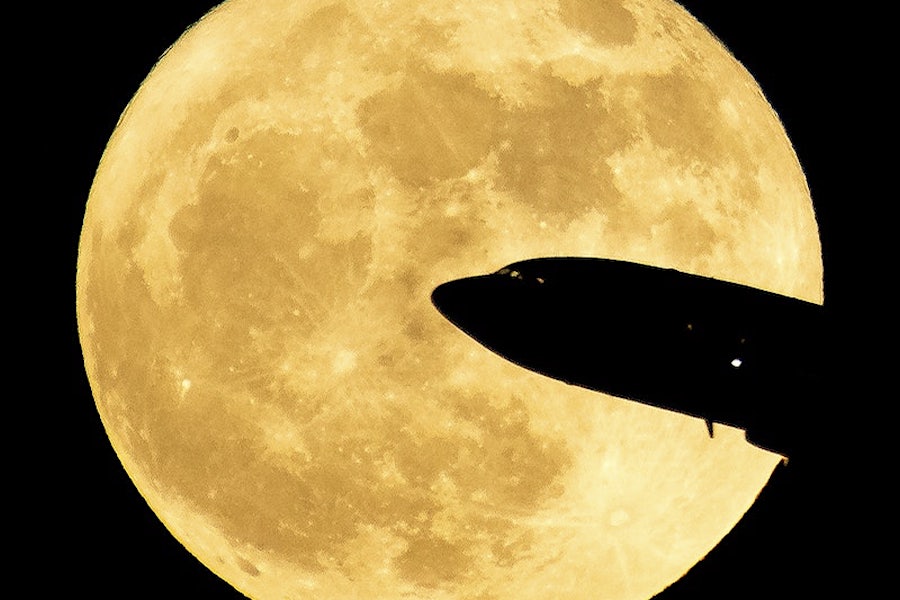Space mining enthusiasts to discuss legal framework, funding

Scientists, economists and space mining enthusiasts are set to gather next week in Luxembourg to discuss and analyze the latest discoveries on the subject, as well as new concrete use cases for extra-terrestrial resources.
The Space Resources Week, organized and coordinated by the recently created European Space Resources Innovation Center (ESRIC), will be held as a free phygital event — combining physical and digital channels.
The conference will bring together over 115 international speakers from April 19 to 22, and according to the Luxembourg Space Agency, there are more than 1,000 participants already registered.
Some of the topics to be covered include setting and international legal framework for out-of-earth mining, as well as funding options for research and development of new technologies.
Luxembourg has stepped up efforts in the past two years to achieve its goal of becoming Europe’s hub for space mining.
Luxembourg, which has a long-standing space industry, aims to become Europe’s hub for extraterrestrial mining
The tiny nation, one of the continent’s wealthiest, already has a long-standing space industry, playing a significant role in the development of satellite communications.
While its drive to become a significant actor in the asteroid mining industry is less than five years old, the country has already taken major steps towards fulfilling its ambitions.
In June 2016, Luxembourg agreed to buy a major stake in US-based asteroid miner Planetary Resources, which raised venture finance with its mission of mining high-value minerals from asteroids and refining them into metal foams that could be shot back down to Earth.
The country also announced the opening of a €200 million ($238 million) line of credit for entrepreneurial space companies to set up their European headquarters within its borders.
Previously, the government had reached an agreement with another US-based start-up, Deep Space Industries, to send missions to prospect for water and minerals in outer space. Both parties are currently developing Prospector-X, a small and experimental spacecraft that tests technologies for prospecting and mining near-Earth asteroids from 2021.
Luxembourg hasn’t stopped there. In 2018, it created its own Space Agency (LSA) to boost exploration and commercial utilization of resources from Near Earth Objects.
Legal frame
The nation has also set up a legal frame for exploiting space resources. The law, passed in 2017, says private companies can be entitled to the resources they mine in outer space, but they can’t own celestial bodies.
Former US President Donald Trump signed an order last year encouraging citizens to mine the Moon, stars and other planets with commercial purposes.
The directive classifies outer space as a “legally and physically unique domain of human activity” instead of a “global commons,” paving the way for mining the moon without any sort of international treaty.
“Americans should have the right to engage in commercial exploration, recovery, and use of resources in outer space,” the document states, noting that the US had never signed a 1979 accord known as the Moon Treaty. This agreement stipulates that any activities in space should conform to international law.

Russia’s space agency Roscosmos quickly condemned Trump’s move, likening it to colonialism.
“There have already been examples in history when one country decided to start seizing territories in its interest — everyone remembers what came of it,” Roscosmos’ deputy general director for international cooperation, Sergey Saveliev, said in May.
Russia has been pursuing plans in recent years to return to the moon, potentially travelling further into outer space.
The government revealed in 2018 it planned to establish a long-term base on the moon over the next two decades, while President Vladimir Putin has vowed to launch a mission to Mars “very soon.”
NASA’s global legal framework for mining on the moon, called the Artemis Accords, was signed in October by Australia, Canada, England, Japan, Luxembourg, Italy, and the United Arab Emirates.
The agency failed to engage Russia and China, which has led to speculation that the two nations will join forces to keep the US increasing attempts to dominate extra-terrestrial commerce at bay.
{{ commodity.name }}
{{ post.title }}
{{ post.date }}




Comments
Matthew Dyer
Solar panels in space will solve climate change and make trillions of pounds.also we can use this as an alternative to China’s belt and road initiative.